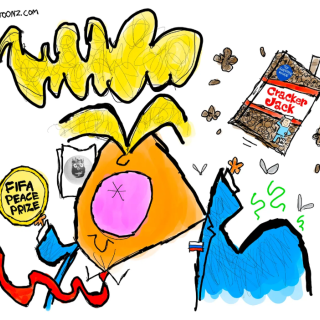Advertisement
Janis Ian was only 14 when she wrote one of the most influential—and controversial—songs of a generation. The story behind the anthem is told in Varda Bar-Kar’s new biographical documentary, Janis Ian: Breaking Silence.
A Jewish girl growing up in a mostly Black New Jersey neighborhood, the then-Janis Fink was inspired after seeing a young interracial couple cuddling on a bus despite the disapproving glares of those around them. The result was “Society’s Child,” about a White girl whose romance with a Black boy sets her up for harassment and demands to “stick to your own kind.”
Recorded in 1965, the song touched on such a raw nerve that it almost didn’t get released. Ian’s producer, Shadow Morton, had anticipated the problem and suggested that she play it safe by changing its first line: “Pick me up from school, baby, face is clean and shining black as night.” When Ian refused, Morton was forced to pitch the song to more than 20 record labels before finding one that was willing to take a chance on it.
Even after the song’s belated 1966 release, as the documentary relates, many radio stations were afraid to play it. And when Ian tried to perform it at a concert, she was met with racist chants of “n----- lover” from audience members who apparently had bought tickets just to prevent her from singing it.
Recalling the incident in the film, Ian admits that her first response was to flee the stage in tears, only to be shamed for her cowardice by a concert official. When she gathered enough courage to return and finish the song, ushers quickly rounded up the 20 or so haters and escorted them out.
“It was a life-changing moment for me,” Ian says, as it taught her that music could make some people angry, but it could also inspire folks to stand up for what’s right.
Ian poses in 1973 with fellow musicians Bruce Springsteen (left) and Billy Joel (right), along with radio DJ Ed Sciaky. (Photo by Peter Cunningham)
This and other anecdotes from Ian’s years of teenage stardom will be fascinating to anyone old enough—or “woke” enough—to care about the role she played in the 1960s’ culture of protest and liberation. Helping to underscore her importance are cameos from luminaries such as Joan Baez and Arlo Guthrie.
Whether the bulk of the film will be equally fascinating depends on the viewer’s interest in a singer/songwriter who’s best known for just two major hits: “Society’s Child” and 1975’s “At Seventeen,” a touching lament about the pangs of growing up unpopular.
Besides revisiting these mileposts, Breaking Silence is basically a chronological synopsis of what Ian was doing when she was largely out of the public eye. There were romantic relationships with both men and women; there were professional liaisons and breakups; there was a concert tour to apartheid South Africa that Ian agreed to only after ensuring that her audiences would be racially integrated.
There was also a run-in with the pre-disgraced Bill Cosby, who accused the 16-year-old singer of being in a lesbian relationship and tried to have her blacklisted. He was wrong, Ian says, though decades later she did come out as a lesbian at the same time she released her appropriately titled 1993 album, Breaking Silence. Further cementing her status as a gay icon, Ian has written columns for The Advocate, and in 2003 she traveled to Canada to marry longtime girlfriend Patricia Snyder.
Ian is interviewed by Johnny Carson (right) on The Tonight Show in 1967, the year after “Society’s Child” was released.
All the while, as the documentary tells us, Ian has continued writing music, releasing albums and, until recently, giving occasional performances. One fact it neglects to mention is that she’s also become an avid science fiction fan and has written several genre stories of her own.
Otherwise, Janis Ian: Breaking Silence does an admirable job of answering the question: Whatever happened to that plucky teen who wrote a song about interracial dating and forced society to face its own prejudice?
Rating: 3½ stars (out of 5)
Janis Ian: Breaking Silence opens in select theaters March 28.





